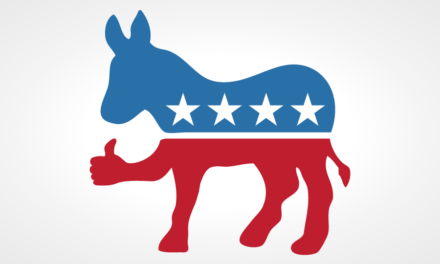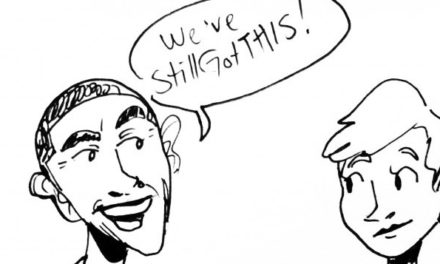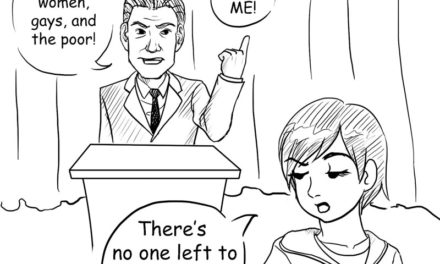How should philosophy be changed?
Too much emphasis is put on the old philosophers. If one devotes oneself toward an understanding, one is not told to muster up any personal response.
Instead, one just re-iterates the past and pays no attention to the crafting of the future. In the spirit of Emerson, we must form our own ideas and craft our own responses to the end of novelty and the avoidance of the placidity of ideas.
It seems wrong that philosophical capacity should be measured by one’s ability to take an examination rather than on one’s actual knowledge.
Philosophy pursues knowledge intrinsically. By instituting testing, however, one forces a philosopher to forego this pursuit and, instead, a philosopher’s priority is made the mark he will receive. This problem is not one that is strictly for philosophers, but rather lies in all academic disciplines.
I think we need to reexamine the discrepancy between what philosophy is and what we are trying to make it become.
Philosophy is not an academic discipline; it is an attitude or way of life. To marginalize it to a subject area is to destroy the whole idea of philosophy.
To paraphrase Socrates, philosophy exists wherever there is wonder. It embodies the pursuit of knowledge and truth. It is a way of approaching things. To approach a thing with the intent to know the thing is to approach as a philosopher.
Is there a ‘should’ in the first place?
There is only pure philosophy until an assumption is taken for granted and the thought evolves, with the assumption at its base, into a discipline.
In economics, the assumption is that resources are scarce. In medicine, the assumption is that human life is worth saving. In politics, the assumption is that a state should be governed or that there is a viable structural means to achieve happiness.
It is always a matter of presupposing what ‘should’ be done. A pure philosophy makes no such presuppositions and so contains no presuppositions. With this in mind, some would say we must respectfully back off from philosophy and not impose any restrictions on the idea.
All philosophers (and all people) set down axioms and so make assumptions in order to establish anything. Even Descartes begins by presupposing he ‘is’ when he says, “I think, therefore I am.” He assumes there is an ‘I’ thinking and bases his existence off of this assumption.
Proclaiming that I am an individual is assuming that I am an individual. Rationalizing that I am an individual because I have an independent mind and body is assuming that I have a mind and body. And then saying that I have an independent mind and body because this seems self-evident is assuming that this seems self-evident. This can continue ad infinitum.
So, some will say a pure philosophy may be a complete waste of time in that no truth will be found in endless questioning, and it will not be conducive to the goals of civilization, unless of course we question together in peace and love.
But I don’t think the human mind is built for this.
Perhaps not finding truth is the truth though. Perhaps acknowledging that there is no complete certainty in the world is the truth, that things can only be assumed and not established beyond all doubt.
Consolidation
So, instead of tearing down contemporary academia, I propose that we instead garner this principle-less-ness and inject them into the contemporary subjects.
Philosophy in the college should involve a plethora of courses from different departments so that the philosopher can survey the different fields of knowledge that exists today. Philosophers should not receive grades, but only constructive criticism on the quality of their ideas.
But most importantly you can remember, my views themselves are uncertain and a complete assumption so take what I say with a grain of salt.
This view is an impossible view as it negates itself, proclaiming its own uncertainty. But although it may not be certain, it may be probable. I suppose I would have done better if I said nothing at all, or perhaps maybe living in a world of maybes is the possibility I need to be free…or maybe not.
Erik Bloom is a College senior from Dobbs Ferry, N.Y.
The Emory Wheel was founded in 1919 and is currently the only independent, student-run newspaper of Emory University. The Wheel publishes weekly on Wednesdays during the academic year, except during University holidays and scheduled publication intermissions.
The Wheel is financially and editorially independent from the University. All of its content is generated by the Wheel’s more than 100 student staff members and contributing writers, and its printing costs are covered by profits from self-generated advertising sales.






Good luck getting the philosophy department to abandon strict methods of evaluation. Those elitist boot-licking bureaucrats get their jollies through ‘judgment’ – yeah, you might know it as a central focus in the works of Immanuel Kant, but for Emory’s philosophy department, judgment seems to be their primary form of jolly-getting, their way of coping with their disdain for life.